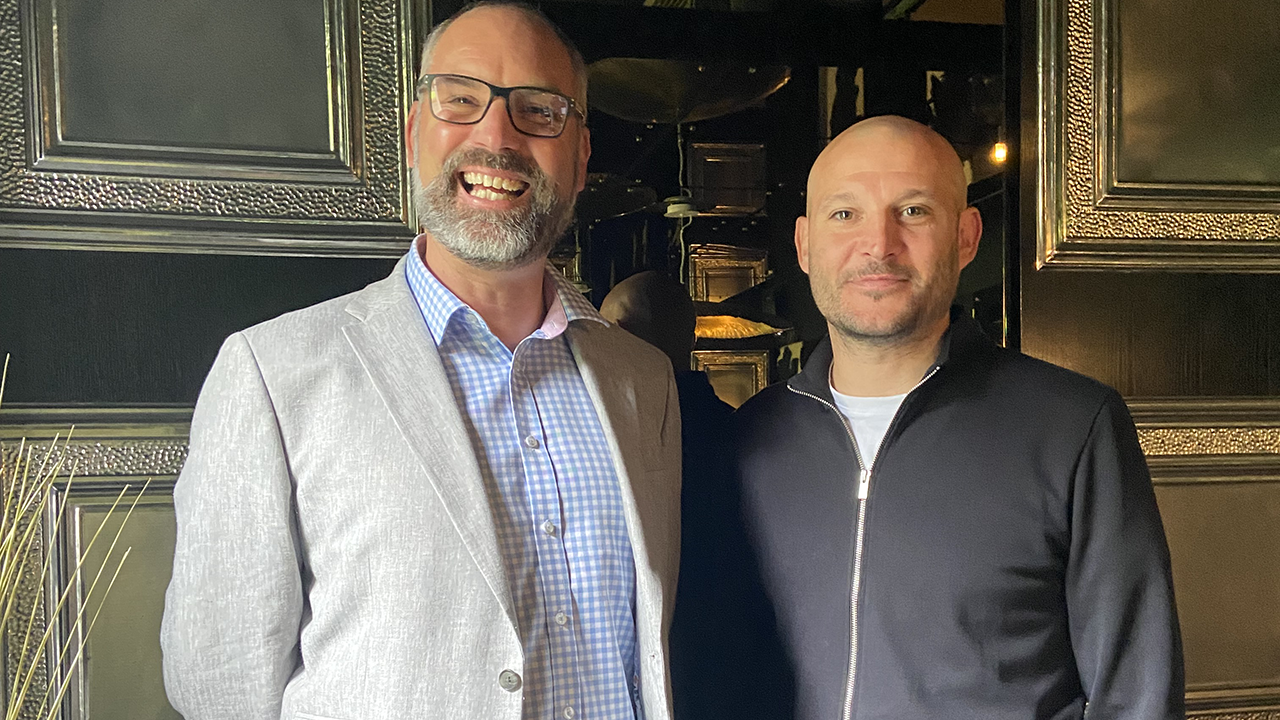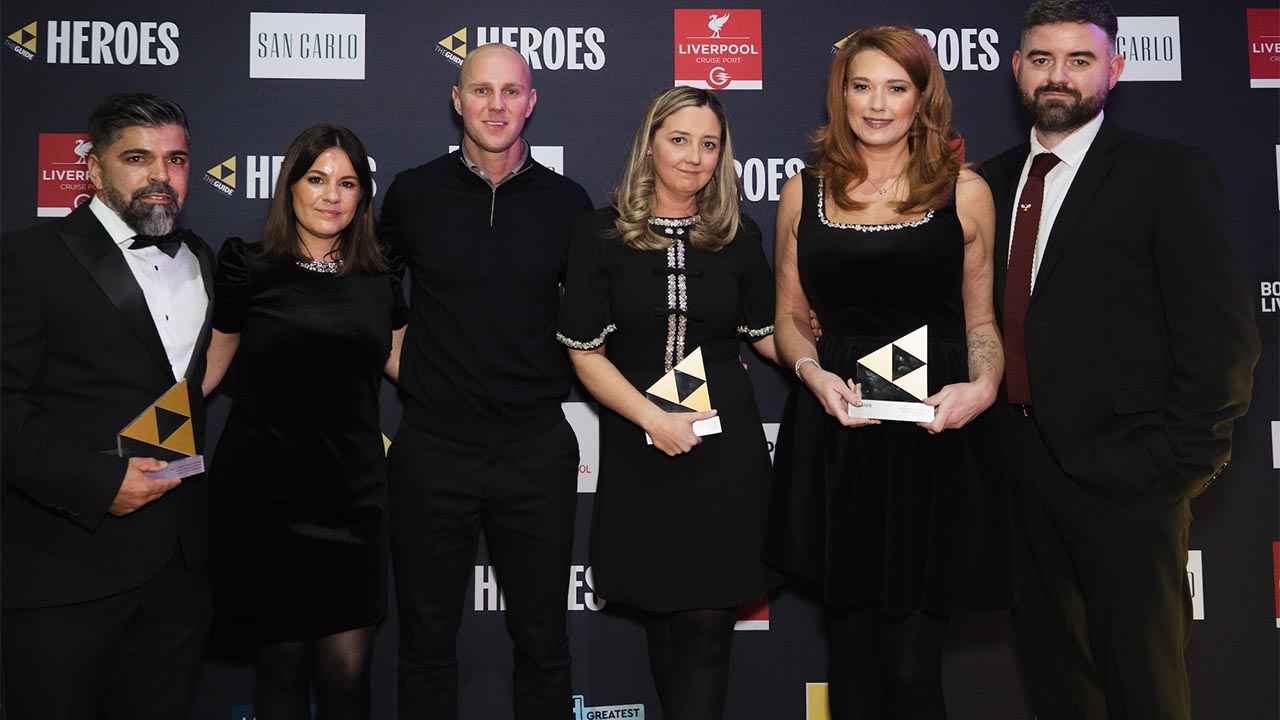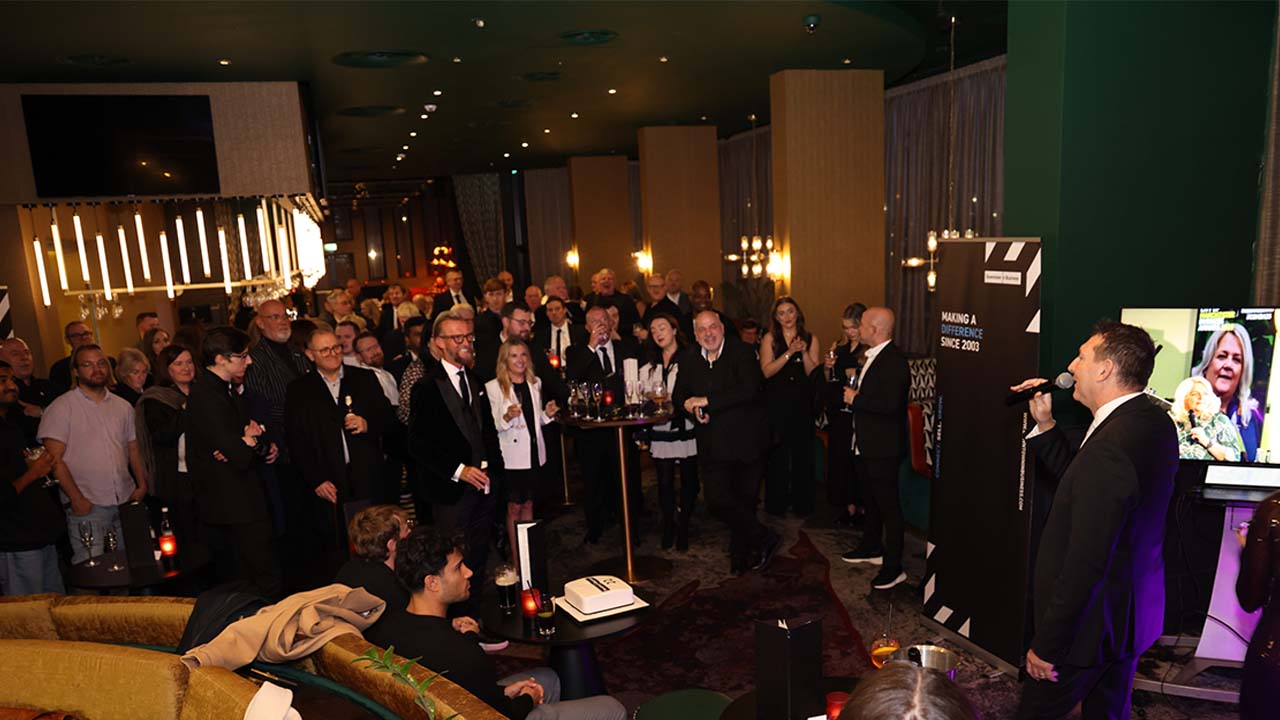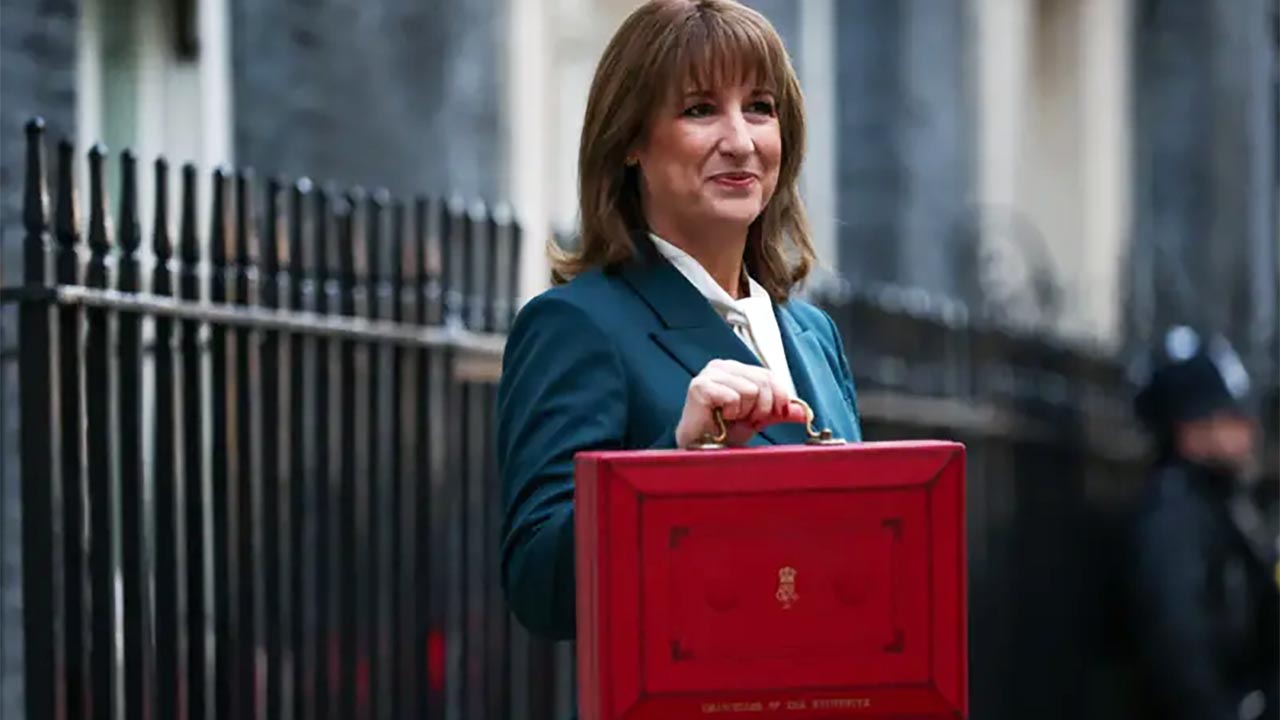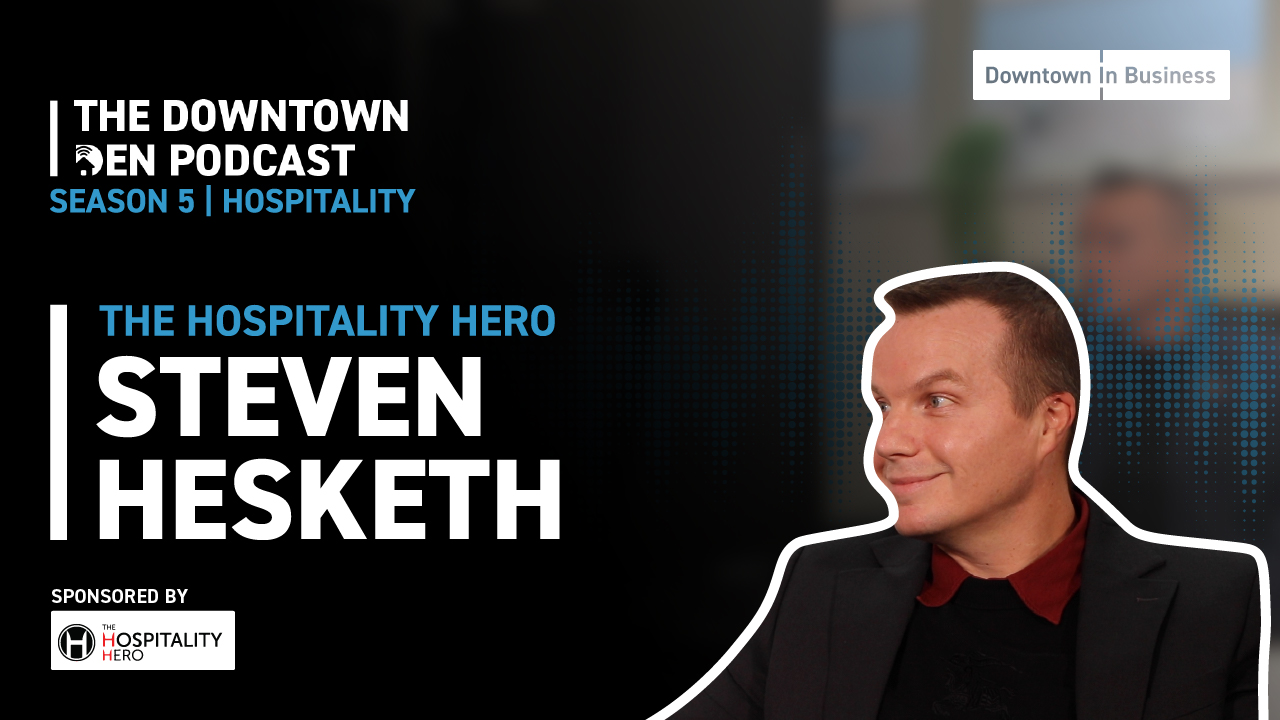DIB Manchester hosted another fantastic Lunchtime networking event on Tuesday 2nd of July.
The ‘Connected Places: Connectivity for Good’ roundtable lunch, held from 12:00 PM to 2:30 PM at the fantastic Gaucho in Manchester, was attended by leaders and influential stakeholders in the property, tech, and regeneration sectors eager to explore the pivotal role of digital connectivity in driving regional growth.
Attendees were treated to an excellent lunch that served as a platform for meaningful discussions on how the business community can contribute to developing state-of-the-art digital infrastructure in Greater Manchester. The lunch featured a keynote speech from John Duncan, the Connected Places Lead at the Greater Manchester Combined Authority (GMCA), who delivered a compelling address to Downtown members.
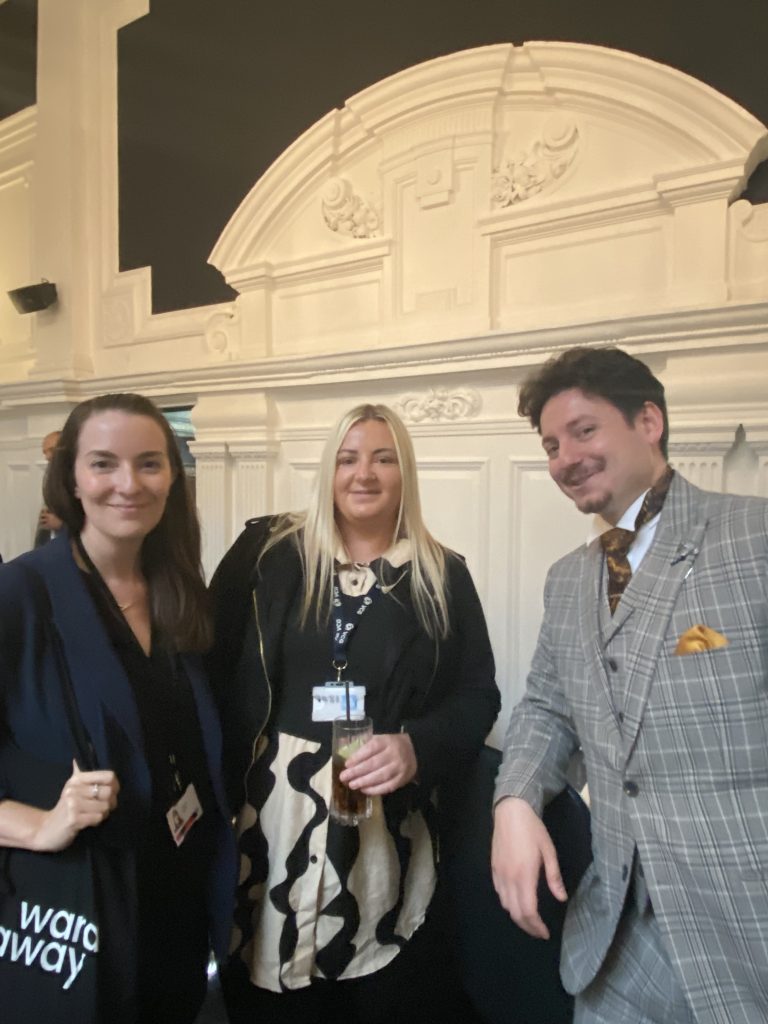
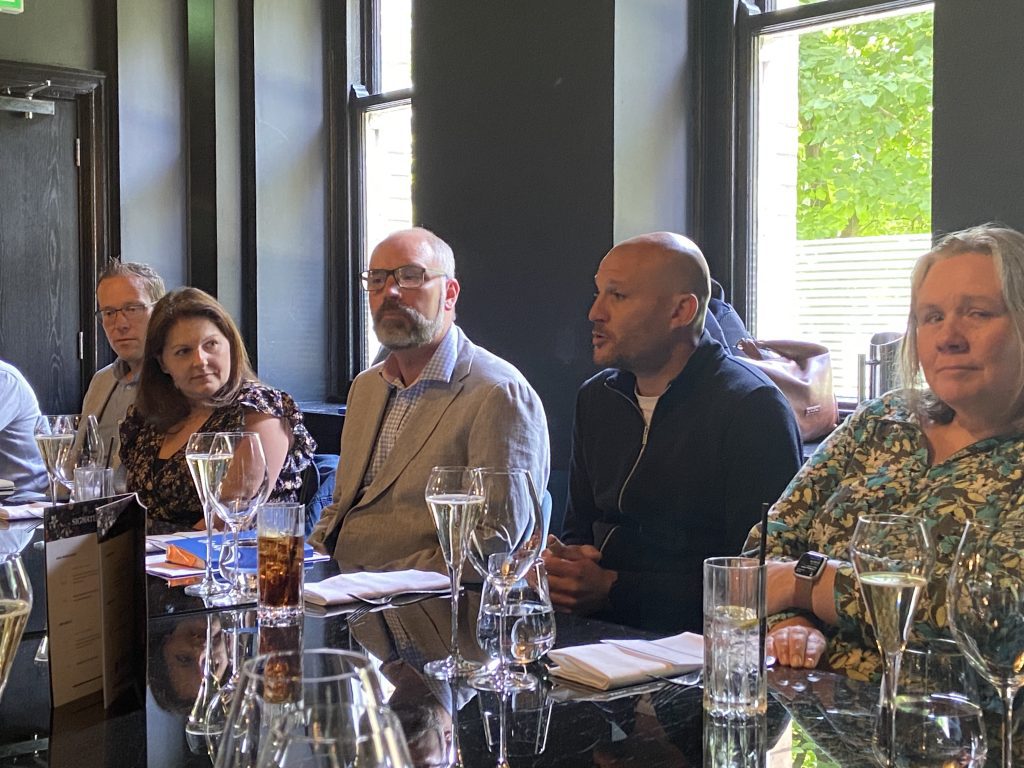

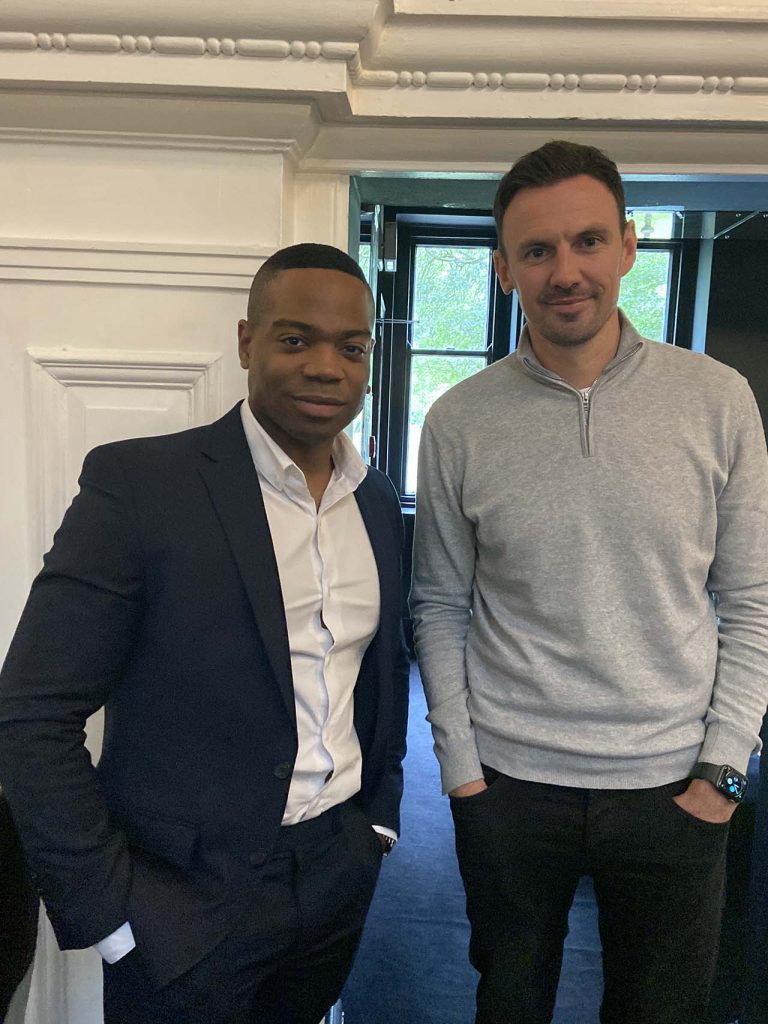
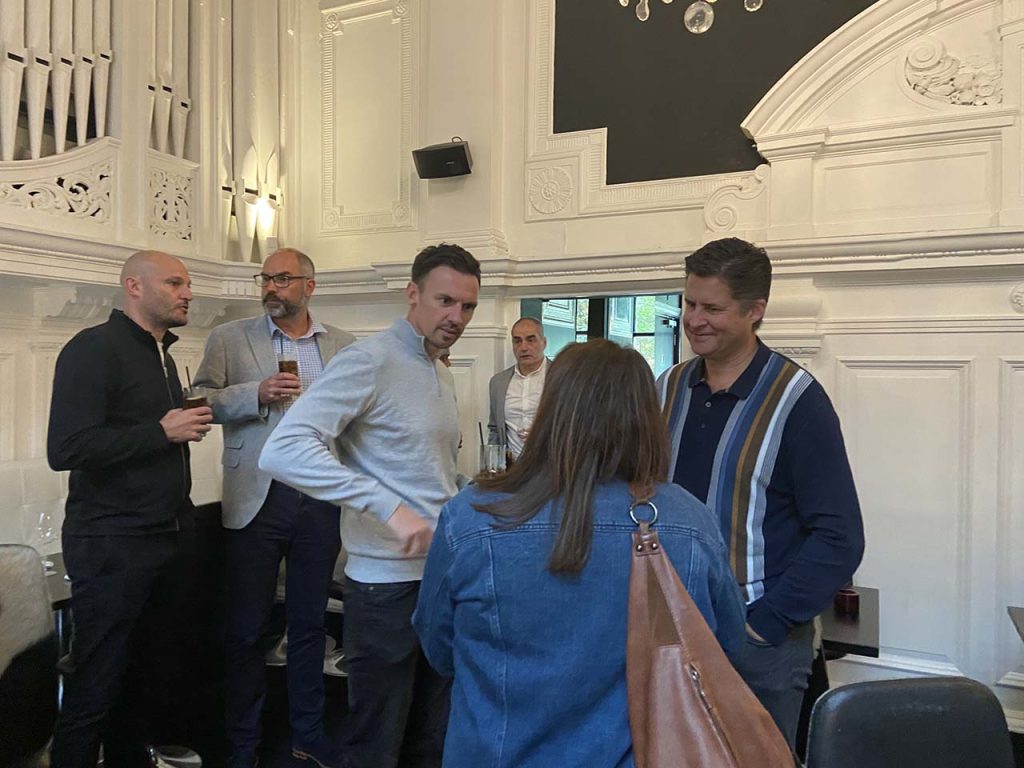
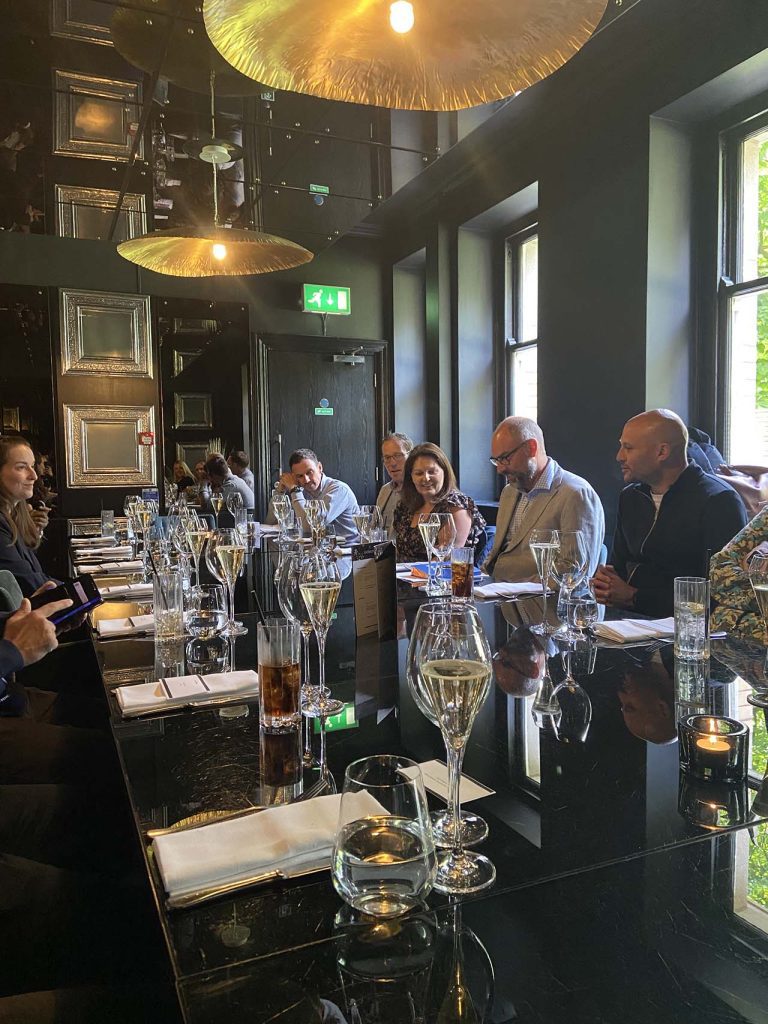
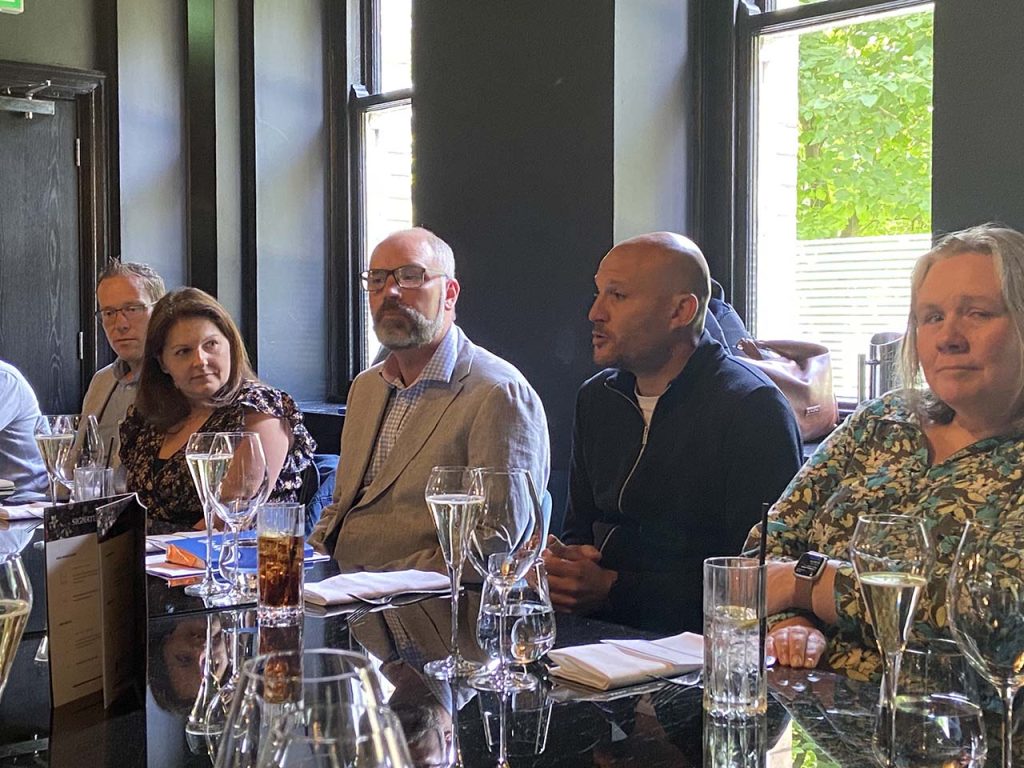
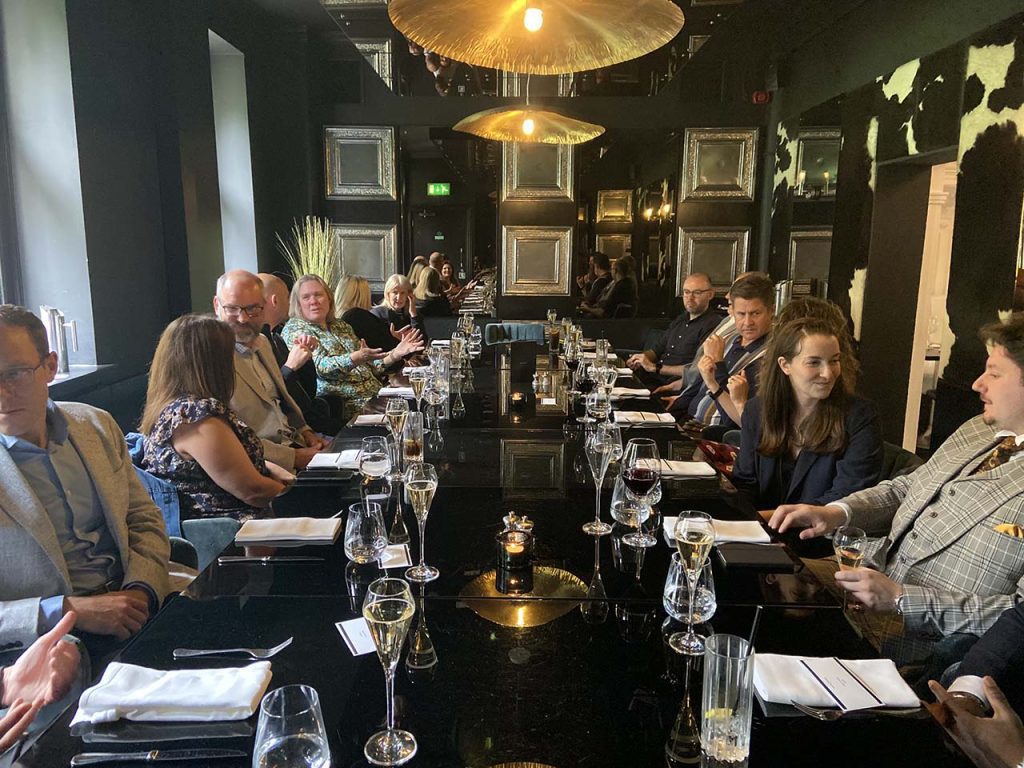
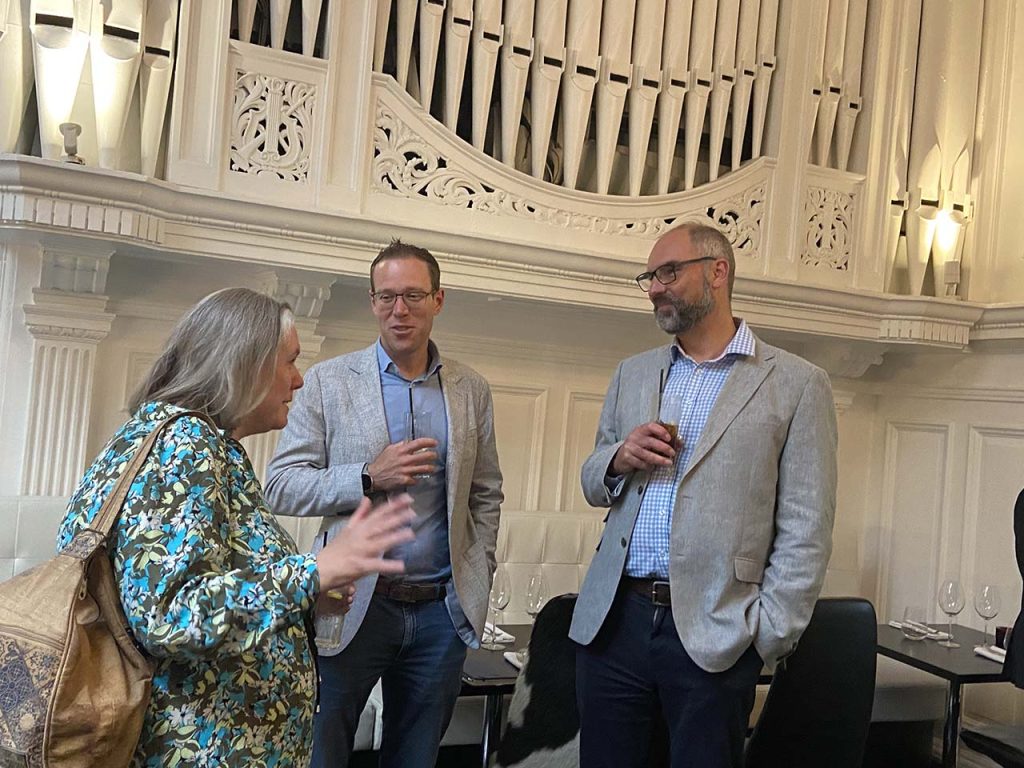
Drawing from his extensive experience in digital strategy, connectivity, and inclusion, John shared his vision for leveraging technology to enhance lives, protect the environment, and create a more equitable society. He provided insights into the GMCA’s plans to build world-class digital infrastructure in the Manchester City Region and emphasised the importance of collaboration between the public and private sectors to achieve these goals.
He gave an overview into what’s been a fascinating first 10 weeks on the job for him as GMCA’s Connected Places lead, explaining that Connected Places “is about bringing digital connectivity to connect people”.
He detailed the collaborative approach GMCA takes throughout implementing its many connectivity projects stating, “We’re not leaders, we’re part of a team, GMCA can speak as one voice for the 10 local authorities when it comes to connectivity”.
Greater Manchester has a digital Blueprint launched by Metro Mayor Andy Burnham in May and John explained that by working as a team across all local authorities, GMCA are trying to use this plan to create inclusive, green, digital places.
Manchester already has a thriving Digital economy with thousands working in the sector, but John feels that digital connectivity is at the heart of places, and everyone should consider connectivity from the start when it comes to launching businesses or products.
He explained that for example, mobile connectivity can be very hit and miss – “Manchester has 99% coverage, but it doesn’t always feel like it!”
John wants developers to work with providers to see where they should be focussing on connectivity and work with planning departments, engaging early with the digital industry to ensure success, for example considering internal coverage to make sure mobile is well connected and encouraging competition to keep costs down for consumers when it comes to things like fibre connectivity – “ideally no site should have only one organisation providing coverage”.
John also went into detail on some of the projects the GMCA are currently embarking on for example, the public sector GM1 full fibre network that provides a free Wi-Fi nexus in public sector buildings to help people who don’t have as much access to digital services.
For John the most important thing is that “connectivity has to be inclusive, people have to be able to have the skills and equipment to get online, there’s no point if people can’t use it or can’t afford it, we have to make sure everyone gets the benefits.”
He gave the example of the fact that Manchester is a 92% capable gigabit region, having smashed its 85% target, but take up isn’t 92%! – “Just because you have gigabit capability doesn’t mean people can afford it or even know what it means or what the benefits are.”
John feels connectivity is all about asking how I.T. can help people in their everyday lives by making things easier or reducing costs, for example smart metres or heat pumps in houses or monitoring traffic flows to reduce congestion.
This was a topic that was returned to during the question and answer session where in response to a question on how we can build physical in person community through digital, John explained that have already been digital inclusion hubs created where people can get training in the digital skills they need and a lot of these hubs also have food banks attached sending an important message about how we can use tech for good in communities to bring people together in a group setting.
A priority for Connected Places is disability and accessibility and building individuals confidence. GMCA can work with the NHS, the transport Sector, and others to try and break down silos. He believes we should take Scandinavia as a prime example to follow, where health, education and connectivity are all rooted into one and often collaborate better.
Data sharing and processing between industries is another key factor for John in building connected places. He explained that we already have plenty of data centres across Manchester including a £350 million dollar data centre in Stockport. In fact, Manchester is first after London when it comes to data centres and ninth in Europe. Data Centres use space, water, and energy, but with the plentiful ex industrial space in and around Manchester, John feels now is the perfect tine to expand efforts since AI is generating more data than ever before which has processing and storage needs.
To round off a fascinating discussion, during the question-and-answer session, John spoke on the importance of better marketing the projects happening around digital connectivity in response to an insightful question about the lack of awareness of these developments.
He reiterated the importance of spreading the word, since often not many people know what the public sector is doing in comparison to the private sector. “It’s all about storytelling, according to a recent poll, local governments had a 70% trust rate as opposed to 20% for central government, and local stories will make the difference.”
Of the event itself John commented: “It was great to speak with everyone here today, I was really happy to see all the mixture of people round the table, we had people from the tech sector, the property sector, which was great to see and I was delighted to be able to chat all things connectivity and the connected places agenda.”
This event certainly fostered a noticeable collaborative spirit, The conversations echoed the themes of connectivity, inclusivity, and sustainability, reflecting the broader objectives of the GMCA.
The atmosphere was one of optimism and forward-thinking, as DIB members shared ideas and explored potential partnerships to drive digital innovation in the region.
Reflecting on the event, Downtown in Business Director Chris McKenna expressed his delight at the success of the gathering saying “We are thrilled to have hosted such a significant event with John, whose expertise and vision for digital infrastructure are truly inspiring. Events like these are crucial for making everyone aware of what’s going on in the world of digital connectivity and as John put it, spreading the word, and starting conversations across industries. We thank everyone who attended for their valuable contributions.”
The ‘Connected Places: Connectivity for Good’ lunch underscored Downtown in Business’s commitment to driving positive change and innovation within the Manchester City Region. As the business community looks ahead, the collaborative efforts and discussions from this event will undoubtedly play a key role in shaping the future of digital infrastructure in Manchester.
Downtown in Business looks forward to hosting future events that continue to promote dialogue, forge connections, and drive growth in the digital and other sectors.

